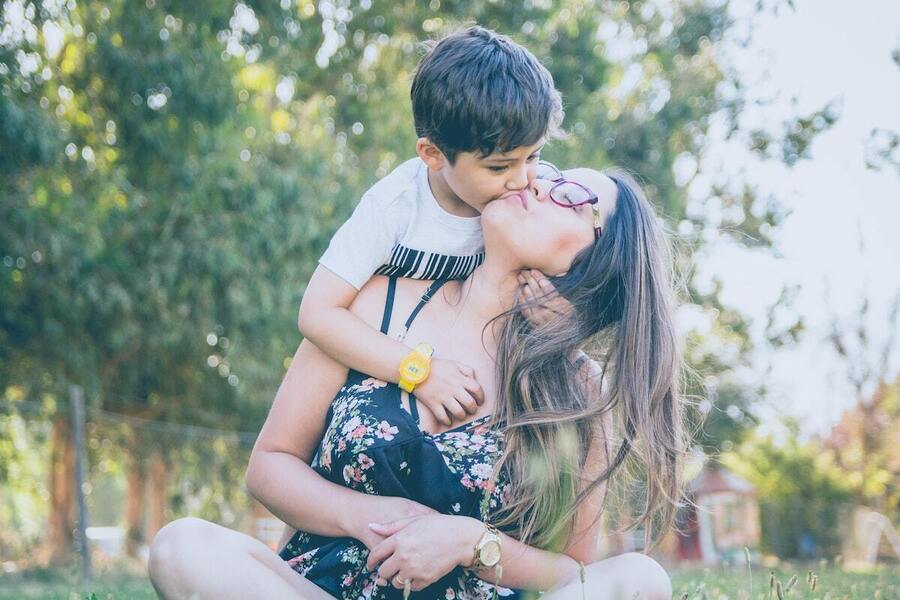2Gen Model—Friends of the Children

Locations
- FOTC - Fargo Moorhead, North Dakota
- FOTC - Los Angeles, California
- FOTC - Tacoma, Washington
Focus Area
- Emerging Focus Area
"We serve a huge population of families that are in their second generation of foster care. My desire is to better understand generational cycles around trauma and poverty. And to end the ongoing cycle of adversity."
The Issue
There are nearly 12 million children in poverty in America today. Many of these children will have contact with a child welfare system, which can have dramatic and lasting effects on a child's future health, behavior, education, earnings, and more. In 2020 alone, 216,838 children entered foster care in the U.S.
There is substantial evidence that shows a high correlation of poverty between generations. Two-generational services are a holistic approach to disrupt the intergenerational effects of poverty while addressing the unique needs of the family. Even though there is evidence of multi-generational poverty and longitudinal studies that show the persistence of generational poverty, there is limited rigorous research that examines outcomes for both parents and children involved in two-generational poverty reduction interventions. Additionally, research on two-generational programs generally focuses on interventions that just impact the parents rather than incorporating long-term programming for both parents and children.
The Intervention
Friends of the Children (FOTC) is a nonprofit organization that works to impact generational change by empowering youth who are facing the greatest obstacles through professional mentorship. As part of their programming, Friends of the Children runs a Two-Generation approach, called 2Gen, which uses the support of professional mentors (Friends) to intentionally support both the child and their caregiver.
Each child is supported by a dedicated Friend who spends 12-16 intentional hours per month with them and their caregivers. Friends create meaningful experiences to explore each child's unique talents and interests while helping them set their own goals in five roadmap areas: school success, social-emotional development; improved health; making good choices; and plans and skills for the future. The 2Gen intervention includes Friend support to caregivers meant to help parents achieve long-term goals that include improved family stability, increased social capital, and enhanced parental engagement in child education. The relationships built between Friends, parents, and students lasts for 12 years, with intensive-concentrated programming for parents in the first three years. As one provider described, they work to "turn a family's light back on."
Research Question
Does the support of a professional mentor to both parents and children lead to better outcomes in child welfare usage, economic mobility, self-sufficiency, family stability, housing stability, caregiver employment and wages, caregiver health/well-being, and child health/well-being?
Intended Outcomes
- Prevention of substantiated engagement in child welfare
- Reduced length of stay, placement instability, and time to permanence for families that enter foster care
- Strengthened parenting resources and strategies as measured by strengthened protective factors for family stability; and
- Improved access to family support services (e.g. behavioral health services) and increased economic mobility
Research Study Design
The designed study is a randomized controlled trial to test the impact of multigenerational mentorship programs on child welfare usage, economic mobility, self-sufficiency, family stability, housing stability, caregiver employment and wages, caregiver health/well-being, and child health/well-being. The study population consists of families identified through a risk and protective analysis as at risk of entering the child welfare system.
Friends of the Children is a national organization and research will be conducted in multiple branches including: Los Angeles, Tacoma, and Fargo-Moorhead. The treatment group will be offered the services of a professional mentor and will complete follow-up services at the one and three year mark. The control group will not receive professional mentorship services; however, other local resources will be available to them.
By comparing the outcomes of caregivers and children that were randomly assigned to the treatment group against those who were randomly assigned to the control group, LEO will be able to isolate the effect of the interventions on outcomes of interest. Importantly, by utilizing random assignment, the proposed research design ensures that the research team will generate causal evidence on the impact of Friends of the Children’s services. If the evidence shows this intervention to be effective in improving outcomes, this will increase Friends of the Children’s ability to expand the program and ultimately serve more caregivers and children.